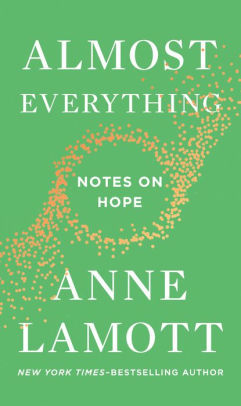More on this book
Community
Kindle Notes & Highlights
We live one day at a time, knowing it’s over too soon, in what feels like about eighteen years, seven months. Zzzzzzzip. Time for a nice catheter and heart pills. Every day we’re in the grip of the impossible conundrum: the truth that it’s over in a blink, and we may be near the end, and that we have to live as if it’s going to be okay, no matter what.
Niels Bohr wrote, “The opposite of a true statement is a false statement, but the opposite of a profound truth can be another profound truth.”
When we are stuck in our convictions and personas, we enter into the disease of having good ideas and being right.
How can we celebrate paradox, let alone manage at all, knowing how scary the future may be—that the baby brother will grow, and ignore you or hurt you or break your heart? Or that we may die, after an unattractive decline, or bomb North Korea later today? We remember that because truth is paradox, something beautiful is also going on. So while trusting that and waiting for revelation, we do the next right thing. We tell the truth. We march, make dinner, have rummage sales to raise relief funds.
If it is someone else’s problem, you probably don’t have the solution. I hate this.
The desperate drive to own and control in order to fill our psychic holes, relieve anxiety, fix difficulties, and cauterize old wounds takes root at an early age, and is doomed. It is like going to the hardware store for bread. It doesn’t sell bread. I can live on corn nuts and Paydays for only so long. Probably no longer than two weeks.
The harm is in the unwanted help or helping them when
they need to figure things out for themselves. Help is the sunny side of control.
There is nothing outside them, nothing they can date, buy, or achieve, that will fill the hole inside them or help them hit the reset button. But it’s very productive of you to try, and try, and try, although they tend to get sicker, as do you. Plus, they start to hate you. So there’s that.
Booker T. Washington said, “I shall allow no man to belittle my soul by making me hate him,” and this is the most awful thing about it. Yet part of me sort of likes it, too, for the flush of righteousness, the bond to half of the electorate. Who would we be without hate? In politics, breakups, custody disputes, hate turns us into them, with a hangover to boot, the brownbottle flu of the spirit.
Haters want us to hate them, because hate is incapacitating. When we hate, we can’t operate from our real selves, which is our strength. Now that I think of it, this is such a great reason to give up our hate—as revenge, to deprive the haters of what they want.
Hate weighed me down and muddled my thinking. It isolated me and caused my shoulders to hunch, the opposite of sticking together and lifting our hands and eyes to the sky. The hunch changes our posture, because our shoulders slump, and it changes our vision, as we scowl and paw the ground. So as a radical act we give up the hate and the hunch the best we can. We square our shoulders and lift our gaze.
We were going from A to B, from one place to another, and then something changed. It means there is the possibility of change, in this dark and unfair world, and in us: in this story, I rose up, and now I feel very different. Look at all that was in my way, look what helped, look at this funny detail. The details we choose are what make a story resonate, and when a story resonates, the dust of confusion clears for a few minutes, and things hold together—and how often does this happen in the rest of life?
The characters in your story are real people to you, and include you, but they aren’t yet real people to your audience: they weren’t there. The specific details are what make it universal, what make it sing. Life is made up of these mosaic moments, seemingly meaningless details that tug on your sleeve to get your attention.
I love Ram Dass’s line that when all is said and done, we are all just walking each other home.
The Dalai Lama said that “religion is like going out to dinner with friends. Everyone may order something different, but everyone can still sit at the same table.”
It shocks me how hurtful and annoying we can be to the people in our families. We know the soft spots on one another’s turtle shells. The weight of family makes us helpless, and in trying to make sure the helplessness doesn’t utterly flatten us, we may throw the dart at someone else.


